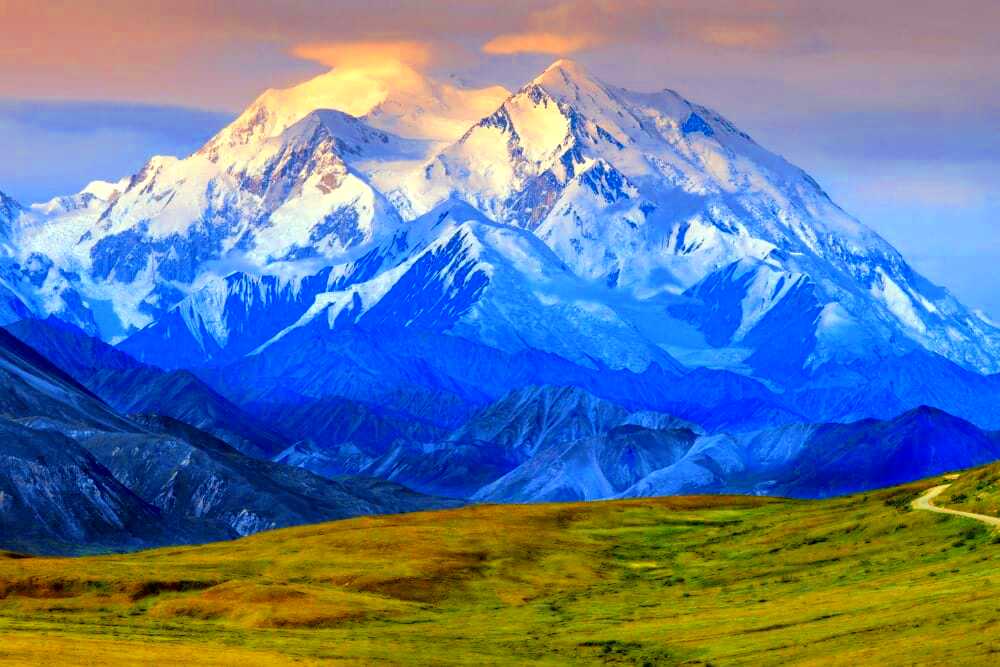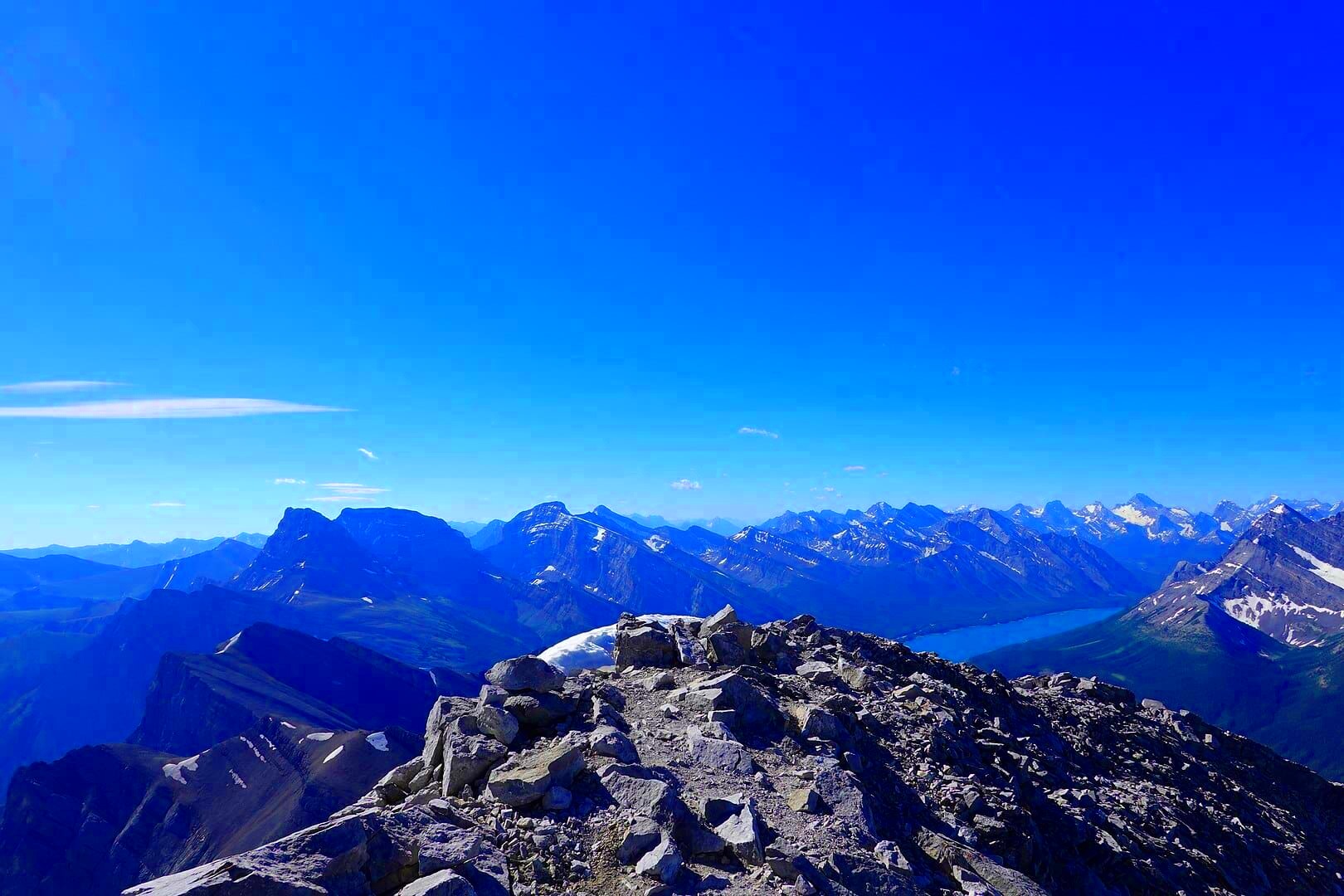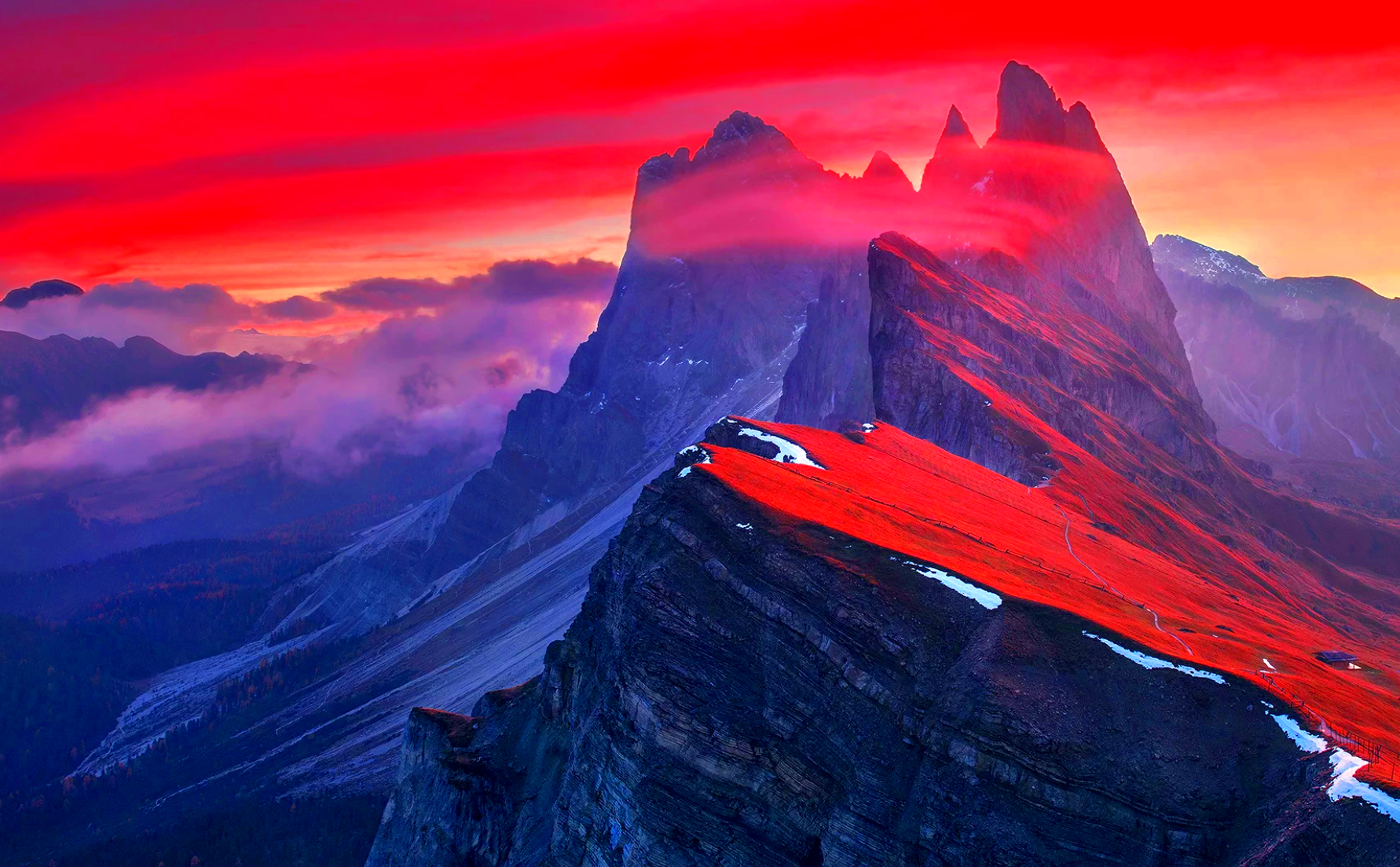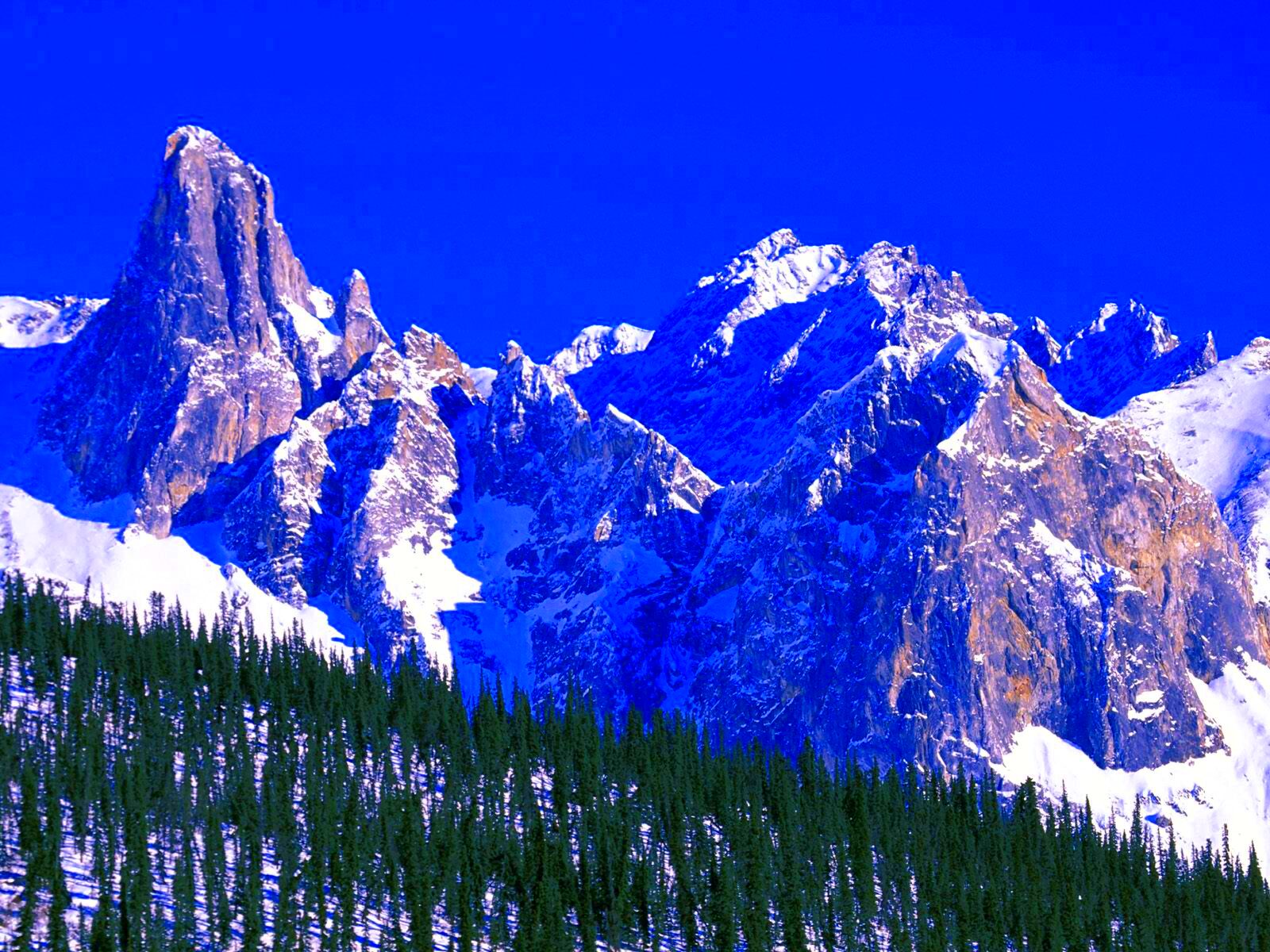Mountain ranges are spectacular nature’s masterpieces, which captivate our hearts with their breathtaking views. These ranges offer more than stunning visuals for they bring a sense of calmness and adventure.As a photographer, hiker or even just someone who loves nature; being in the presence of towering peaks and wide open spaces is something that is uniquely special. This article will explore some of America’s most majestic mountain ranges, looking at what makes them so special and the best photography tips for capturing their beauty.
Top Mountain Ranges in the USA

Among several remarkable mountain ranges in the US, some such as:
- The Rocky Mountains: Stretching from Canada to New Mexico, these mountains boast stunning scenery and diverse wildlife.
- The Appalachian Mountains: Known for their rolling hills and rich history, they offer picturesque views, especially in the fall.
- The Sierra Nevada: Famous for their dramatic peaks and alpine lakes, these mountains are a photographer’s paradise.
- The Cascade Range: Located in the Pacific Northwest, these mountains are known for their volcanic peaks and lush forests.
- The Olympics: A stunning blend of rugged mountains and coastal scenery, the Olympic Range is a unique destination.
Unique Features of Each Mountain Range

Every mountain range is said to be special due to the individual traits they possess:
| Mountain Range | Unique Features |
|---|
| The Rocky Mountains | Home to over 100 peaks exceeding 14,000 feet, breathtaking landscapes, and diverse ecosystems. |
| The Appalachian Mountains | Rich cultural history, scenic byways, and vibrant fall foliage make this range enchanting. |
| The Sierra Nevada | Iconic granite cliffs, stunning waterfalls, and crystal-clear lakes like Lake Tahoe. |
| The Cascade Range | Famous for its volcanic activity, including Mount St. Helens and Mount Rainier. |
| The Olympics | Home to the Olympic National Park, featuring lush rainforests and rugged coastal lines. |
Other than adding beauty to them, these characteristics also offer continuous chance for wandering and shooting pictures.
Photographic Techniques for Capturing Mountains

Taking amazing mountain pictures is not only on relying on good camera but also on understanding the environment and using appropriate techniques. Here are some tips that can assist in capturing stunning mountain photos:
- Use a Tripod: A tripod stabilizes your camera, allowing for clearer shots, especially in low light or long exposure situations.
- Choose the Right Lens: Wide-angle lenses are perfect for capturing the vastness of mountains, while telephoto lenses can bring distant peaks closer.
- Pay Attention to Lighting: The golden hour—shortly after sunrise or before sunset—provides soft, warm light that enhances the mountains' beauty.
- Incorporate Foreground Elements: Adding elements like trees or rocks in the foreground can create depth and lead the viewer's eye into the scene.
- Experiment with Angles: Don't be afraid to move around. Changing your perspective can yield dramatically different results.
Finally, always remember that we are all in the same boat; enjoy it while you can. At times, best memories are formed by just getting in touch with nature around oneself without even taking out their cameras.
Best Times to Photograph Mountain Ranges
In photography timing is critical; there it’s essential to take note of two aspects: mountain capturing or taking pictures of other objects for example landscapes. Below are some suggested times when you can take the most beautiful shots in mountain areas:
| Time of Day | Why It's Ideal |
|---|
| Golden Hour (Sunrise/Sunset) | Soft light creates beautiful shadows and highlights, making the mountains glow. |
| Blue Hour (Before Sunrise/After Sunset) | The sky takes on rich hues, creating a serene atmosphere that enhances the landscape. |
| Fall Season | Colorful foliage adds vibrant hues to your mountain shots, especially in regions like the Appalachians. |
| Winter Months | Snow-covered peaks create a stunning contrast against the clear blue sky. |
| Spring | Wildflowers bloom, adding bursts of color to the rugged mountain terrain. |
When you take into account these instances, it is possible to seize the peaks within their most magical illumination.
Popular Locations for Stunning Mountain Photography
In Mount photography, it is essential to consider location. Some of the best areas to take stunning
images of mountains include:
- Rocky Mountain National Park, Colorado: Offers dramatic peaks, alpine lakes, and stunning wildlife.
- Banff National Park, Canada: Known for its turquoise lakes and towering mountain scenery, it’s a photographer's dream.
- Yosemite National Park, California: Iconic rock formations like El Capitan and Half Dome provide incredible photo opportunities.
- Grand Teton National Park, Wyoming: Known for its jagged peaks and beautiful lakes, especially at sunrise.
- Mount Rainier National Park, Washington: Offers breathtaking views of the mountain and vibrant wildflower meadows.
Every one of these places is beautiful in its own way, so they make the best sites for mountain photography. Make sure not to miss out on going around and finding some different angles that can narrate your tale!
Tips for Editing Mountain Photos
One of the most critical components in improving your mountain photography is editing it. Right techniques can remarkably change how pictures look. Here are some ideas to help you get started:
- Adjust the Exposure: Use exposure adjustments to brighten or darken your image, ensuring that the details in the mountains are clear.
- Enhance the Contrast: Boosting contrast can make your mountains pop against the sky and foreground, giving your image depth.
- Correct the White Balance: Make sure the colors in your photo reflect reality. Adjust the white balance to remove any unwanted color casts.
- Crop for Composition: If your shot isn’t quite right, cropping can help you focus on the most compelling parts of the image.
- Sharpen Details: Adding a little sharpening can help bring out the textures of the mountains, making them look more defined.
Numerous editing applications provide intuitive tools for making these alterations such as Adobe Lightroom or Photoshop. The essence of it is that your changes must look realistic and contribute positively to the attractiveness of the scene rather than overpowering it.
Frequently Asked Questions about Mountain Photography
Excitingly mountain photography is engrossing, although it can bring forth questions at times. Such questions are common:
| Question | Answer |
|---|
| What equipment do I need for mountain photography? | A good camera, sturdy tripod, and a variety of lenses are essential for capturing different perspectives. |
| How do I protect my gear in harsh conditions? | Use weather-resistant gear, carry protective covers, and avoid exposing your camera to extreme temperatures. |
| What’s the best time of year for mountain photography? | Each season offers unique beauty, but many photographers favor fall for colorful foliage or winter for snow-covered peaks. |
| How do I find the best locations? | Research online, check local guides, or join photography groups for recommendations on popular spots. |
| Can I photograph mountains during bad weather? | Yes! Dramatic weather can add mood and depth to your images. Just ensure you're safe and equipped for the conditions. |
Conclusion on the Allure of Mountain Ranges
Neither magnificent views nor breathtaking sites are only Mountain ranges; they also represent adventure, serenity, and grandeur that attract us. Each mountain range has its own unique characteristics and environments from Rocky Mountains’ towering peaks to Appalachian’s rolling hills thus making it a story for itself. We can pass this beauty on to others by taking pictures of these mountains.When climbing the mountain to photograph it, don't forget that it's an adventure. Use these suggestions, visit other sites, and play with several techniques. This way, you will not just improve but also capture moments for life. Therefore, take your camera and go out there—beautiful photos on every corner of great mountains are waiting for you!
 Among several remarkable mountain ranges in the US, some such as:
Among several remarkable mountain ranges in the US, some such as: Every mountain range is said to be special due to the individual traits they possess:
Every mountain range is said to be special due to the individual traits they possess: Taking amazing mountain pictures is not only on relying on good camera but also on understanding the environment and using appropriate techniques. Here are some tips that can assist in capturing stunning mountain photos:
Taking amazing mountain pictures is not only on relying on good camera but also on understanding the environment and using appropriate techniques. Here are some tips that can assist in capturing stunning mountain photos:
 admin
admin








